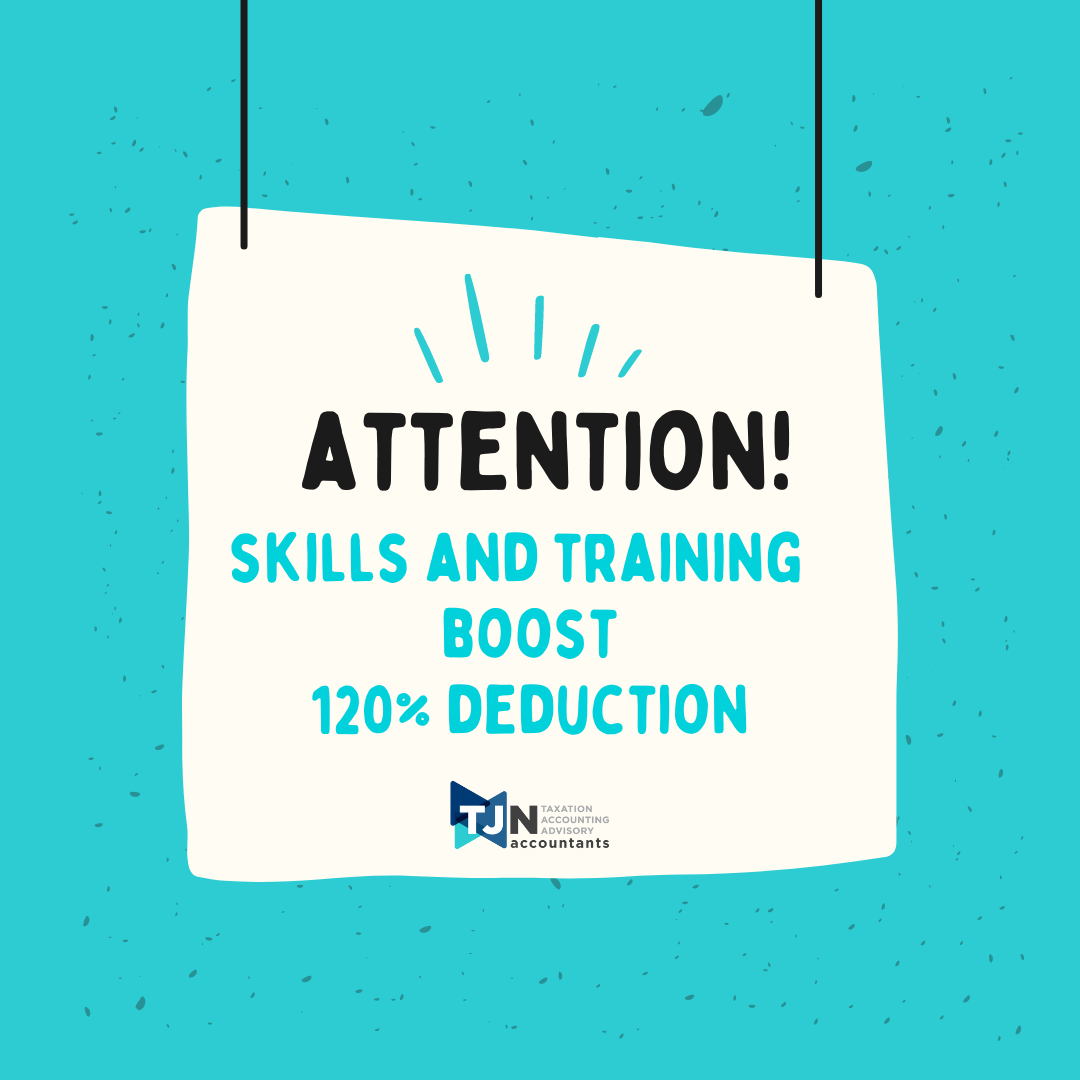Small Business Technology Investment Boost
Legislation was passed on 23 June 2023 to enable small businesses to claim an additional 20% deduction for eligible technology expenditure.
What is the boost?
Small businesses (who have an aggregated turnover of less than $50 million) will be able to claim an additional 20% deduction for expenses incurred to support their digital operations.
The boost is available for expenditure incurred between 29 March 2022 and 30 June 2023 and is capped at $100,000 per income year. The maximum bonus deduction is $20,000 per income year.
Eligibility
To be eligible for the additional deduction, you must meet the following conditions:
- You have an aggregated turnover of less than $50 million for the income year in which you incur the expenditure;
- The expenditure is “eligible expenditure” (see below);
- The expenditure is deductible for your business under Australian tax law;
- The expenditure has been incurred between 29 March 2022 and 30 June 2023.
Eligible expenditure
Eligible expenditure may include (but is not limited to):
- digital enabling items;
- digital media and marketing;
- e-commerce;
- cyber security.
At the end of this article we have included a table of example expenditure that may be eligible for the boost.
What cannot be claimed?
You cannot claim the following expenses towards the boost:
- Salary and wages
- Capital works costs
- Financing costs
- Training or education costs (but these may be eligible for the Small Business Skills and Training Boost)
- Expenses that form part of your trading stock.
Cap on the deduction
There is an annual cap of $100,000 on eligible expenditure (with the bonus deduction capped at $20,000).
When do you claim the deduction
For any expenditure incurred between 30 March 2022 and 30 June 2022, you claim 100% of the deduction in the 2022 tax return and the 20% bonus in the 2023 tax return.
For any expenditure incurred between 1 July 2022 and 30 June 2023, you claim both the 100% deduction and the 20% bonus in the 2023 tax return.
What do you need to do?
To check your eligibility for the boost, we recommend you take the following steps:
1. Review your technology expenditure from 29 March 2022 to 30 June 2023;
2. Identify any expenditure that has been incurred to help digitise your business;
3. If you use online accounting software, attach a copy of the invoice to the transaction in your software;
4. Provide us (your accountant) with the details of all relevant costs incurred that meet the eligibility criteria.
Provided we have the relevant documentation to prove eligibility to the boost, we will claim the additional 20% deduction in your tax return.
Please do not hesitate to contact us if you would like further information about the boost.
Examples of Possible Eligible Expenditure
Category
Example expenditure
Digital enabling items
Computer and telecommunications hardware
- Desktop and laptop computers
- Digital tablets
- Computer keyboards
- Webcams
- Computer mouse, trackpads, stylus
- Computer cables
- Powerpacks
- Electrical and power adapters
- Repairs and improvement costs to computer hardware and equipment
Digital enabling items
Telecommunications hardware and equipment
- Landline phones
- Mobile phones
- Smart watches
- Telephone accessories
- Repair and maintenance costs
Digital enabling items
Software
- Initial purchase
- Annual subscriptions (eg. accounting software subscriptions, Office 365, anti-virus, ServiceM8)
Digital enabling items
Internet
- Usage costs
- Connection costs
- Repair costs
Digital enabling items
Computer systems
- Subscriptions to support digital capabilities
- Help desk support fees and charges
- IT support charges
- Repairs and improvement costs
Digital media and marketing
- Audio and visual content creation
- Web page design
- Web page update costs
- Search engine optimisation fees
- Email marketing fees
- Photo stock fees
- Music royalty fees
E-Commerce
- E-commerce website setup
- E-commerce website optimisation
- Setup of social media store functionality
- Costs associated with setting up online methods of payment
- Photography costs for online display
- Photostock fees
- Portable payment devices
- Digital inventory management
- Subscription to cloud-based services
- Advice on digital operations
Cyber Security
- Cyber security consultant fees
- Cyber security software (eg. anti-virus)
- Cyber security installation and implementation costs
- Cyber security backup management
- Cyber security monitoring services
DISCLAIMER: The information in this article is general in nature and is not a substitute for professional advice. Accordingly, neither TJN Accountants nor any member or employee of TJN Accountants accepts any responsibility for any loss, however caused, as a result of reliance on this general information. We recommend that our formal advice be sought before acting in any of the areas. The article is issued as a helpful guide to clients and for their private information. Therefore it should be regarded as confidential and not be made available to any person without our consent.

Jeanette has over 20 years experience as an accountant in public practice. She is a Chartered Accountant, registered tax agent and accredited SMSF Association advisor. When she is not helping business owners grow their empires, you will likely find her out running on the trails or at the gym. Book in to see Jeanette today.



